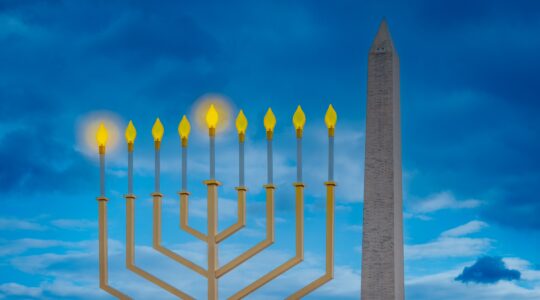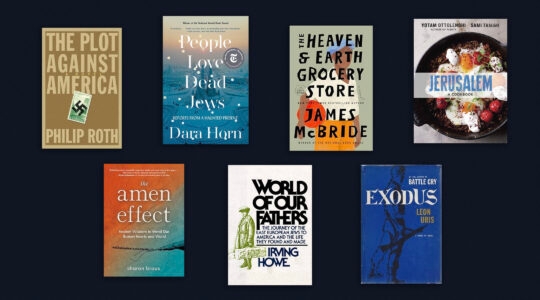Several public opinion polls from the first half of this year reinforce the disturbing notion that there is a growing rift between Israel and American Jewry. But what can actually be done to counter this trend?
A UJA-Federation of New York survey published in January, “Together and Apart: Israeli Jews’ Views on their Relationship to American Jews and Religious Pluralism,” found that most Israeli Jews believe their government should not consider the views of American Jews when deciding on issues relating to religious pluralism. A majority of respondents said U.S. Jewry’s opinions should be taken into account “not much” or “hardly at all” regarding the status of the Reform and Conservative movements in Israel (55 percent), prayer at the Western Wall (57 percent), and the regulation of conversion to Judaism (54 percent). Sixty-seven percent reject the Israeli government’s consideration of American Jewish leaders’ views on settlement construction, and 64 percent have the same position about peace negotiations with the Palestinians.
April’s report from the Jewish People Policy Institute (JPPI), “70 Years of Israel-Diaspora Relations: the Next Generation,” found that 57 percent of American and Israeli Jews perceive a “distancing” between their communities. The report states, “Israel-Diaspora relations are in a state of flux, with the Jewish world’s center of gravity shifting toward Israel—and Diaspora Jews, whether quickly or slowly, happily or unhappily, are growing accustomed to this change and acknowledging it.”
And in an American Jewish Committee study released in June, 73 percent of American Jews supported an egalitarian prayer space near the Western Wall, compared to only 42 percent of Israeli Jews. Eighty percent of Jews in the U.S.—but just 49 percent in Israel—back the concept of non-Orthodox rabbis officiating weddings, divorces, and conversions. Eighty-five percent of Israeli Jews applauded the recent relocation of the U.S. Embassy in Israel to Jerusalem, a move backed by 46 percent of the survey’s American respondents.
The data is alarming. Yet to solve the problem, we must first diagnose it. At its core, the inordinately high tension between Jews in Israel and the U.S. stems from a burgeoning crisis of misunderstanding.
Many Israelis do not fully comprehend the diverse American Jewish landscape, particularly when it comes to religious pluralism, but also on the range of U.S. Jews’ opinions about political issues such as the Israeli-Palestinian conflict, settlements, the Iran nuclear deal, and the embassy relocation. Israeli Jews’ views on such policy issues are more uniform than the opinions of their American counterparts. In the religious arena, Jews in Israel largely fall into a binary observant-secular split, as opposed to the more complex array of Jewish denominations in the U.S.
Since 2013, the University of Haifa has addressed the imperative for Israelis to gain a deeper understanding of U.S. Jewry through the Ruderman Program for American Jewish Studies, a first-of-its-kind master’s program within the University’s Department of Jewish History. It is clear that this program is needed now more than ever.
Launched and continuously funded with the generous support of the Ruderman Family Foundation, the program covers a wide range of issues pertaining to American Jewish life; American society; and the long-lasting and important bond between the Jews of America, the State of Israel, and Israeli society. The program includes a 10-day field trip to the U.S., during which Israeli students meet American Jewish students and Jewish leaders, visit various museums, and attend lectures by prominent figures in U.S. Jewry.
During this year’s field trip from June 10-20, Ruderman Program participants visited New York, where they toured the Center for Jewish History, Ellis Island, Eldridge Street Synagogue, Hebrew Union College, the Tenement Museum, Yeshiva University, Yeshivat Chovevei Torah, and other sites, while meeting with Consul General of Israel in New York Dani Dayan and Israeli Ambassador to the U.N. Danny Danon. In Philadelphia, the Israeli students stopped at the National Museum of American Jewish History and Reconstructionist Rabbinical College. In Washington, D.C., they visited AIPAC, the Anti-Defamation League, Hillel International, Pew Research Foundation, and the U.S. Holocaust Memorial Museum. The participants met with Elliott Abrams, a former foreign policy adviser in Republican presidential administrations, as well as Ann Jacobs, projects director in the office of Maryland Democrat Sen. Ben Cardin.
Academic programs such as University of Haifa’s American Jewish Studies degree, as well as firsthand encounters like its summer study tour, are unique mechanisms for bridging the gap between Israeli and American Jews. For Israeli Jews, there is no substitute for the immersive experience of actually seeing and studying the American Jewish community’s defining institutions, leaders, and movements. Indeed, as the JPPI report states, person-to-person contact between American and Israeli Jews creates true bonds between their communities and “contributes to a feeling of a shared fate.”
The State of Israel and the Israeli people should not take American Jewish support for granted—especially during this sensitive time. For Israelis, showing appreciation for their country’s greatest friend in the international arena must include making an effort to actually understand American Jewry. Strengthening mutual understanding between these Jewish communities will make the already stalwart U.S.-Israel bond even stronger.
Karen Berman is CEO of the American Society of the University of Haifa.
Support the New York Jewish Week
Our nonprofit newsroom depends on readers like you. Make a donation now to support independent Jewish journalism in New York.
The New York Jewish Week brings you the stories behind the headlines, keeping you connected to Jewish life in New York. Help sustain the reporting you trust by donating today.




